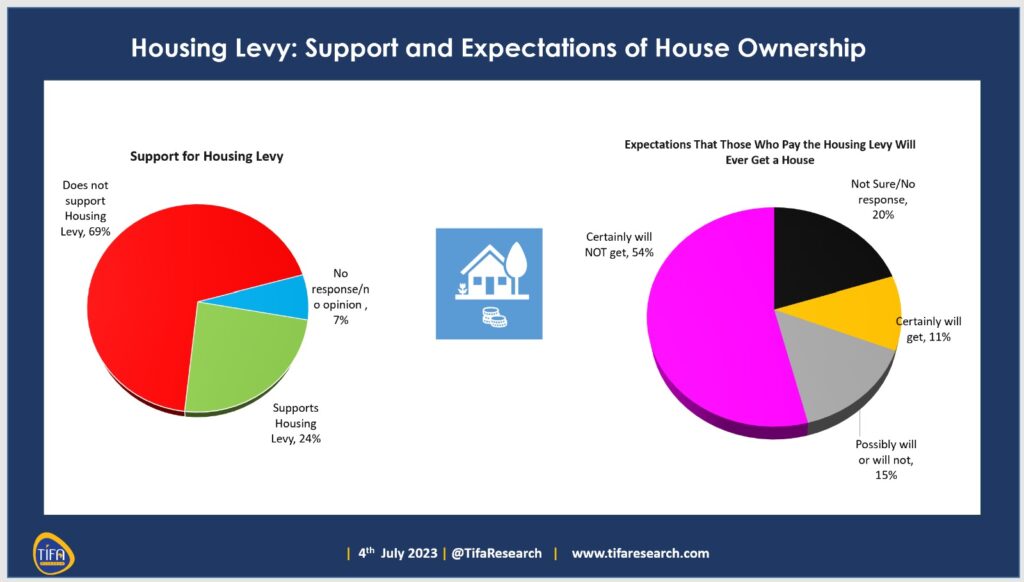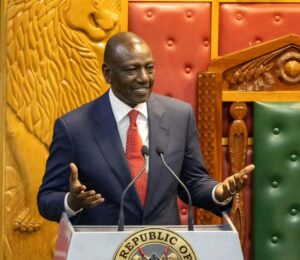54% of Kenyans Believe They Will Not Get Houses Under the Finance Bill

A new survey shows that majority of Kenyans do not believe they will get houses under President William Ruto’s Housing Fund which was recently approved under the Finance Act.
The survey released on Tuesday by research firm Trends and Insights For Africa (TIFA) revealed that expectations that those who pay the new housing levy will ever get a house are quite most, with nearly five times as many of all Kenyans certain that they will not as compared to those who certain that they will.
The survey was conducted between June 23 and 30.
Of the 1,500 respondents TIFA interviewed, 54 per cent said they do not expect to get a house, while only 11 per cent expected to. 15 per cent of the respondents said they possibly will or will not get a house, while sixteen per cent were not sure.
“Expectations are markedly shaped by political alignment, however, with five times more government supporters certain they will get a house (20 per cent) as compared to opposition supporters (4 per cent),” read the findings.
However, not all opposition supporters hold such negative expectations, as 30 per cent were still positive about the prospects of getting a house if they pay the housing levy.
The report also states that only three per cent of Kenyans earn an income above Ksh.50,000 a month, and 38 per cent of Kenyans do not have a monthly income, and 12 per cent earn less than Ksh.5,000.
Those earning between Ksh.5,000 and Ksh.10,000 were 12 per cent of the respondents, while 13 per cent earn between Ksh.10,000 and Ksh.20,000.
Some 10 per cent earn between Ksh.20,000 and Ksh.50,000 while 11 per cent said they are not sure.
TIFA found a correlation between monthly income and the expectation of being liable to pay into the new housing fund, in that Kenyans earning a monthly income of over Ksh.50,000 make a majority of those expecting to pay the 1.5 per cent housing levy.
“It is striking that even among those currently earning nothing, one quarter has such an expectation (25 per cent) while only slightly more than twice that proportion (59 per cent) in the highest income group do so,” said the report.
Researchers attributed this to the fact that only those in the formal sector, whose employers will be obliged to match their 1.5 contributions, fall within its mandatory deduction category.
Some 184 MPs voted in support of the housing tax while 72 opposed it in a heated debate between the Kenya Kwanza allied MPs and their counterparts from the Azimio opposition coalition.
President Ruto later assented to the Finance Bill 2023, paving the way for employees to be charged a 1.5 per cent tax on their gross salary starting July.
However the enactment of the Act has since been suspended by the High Court, following a petition by Busia Senator Okiya Omtatah seeking to have some sections of the law purged.




